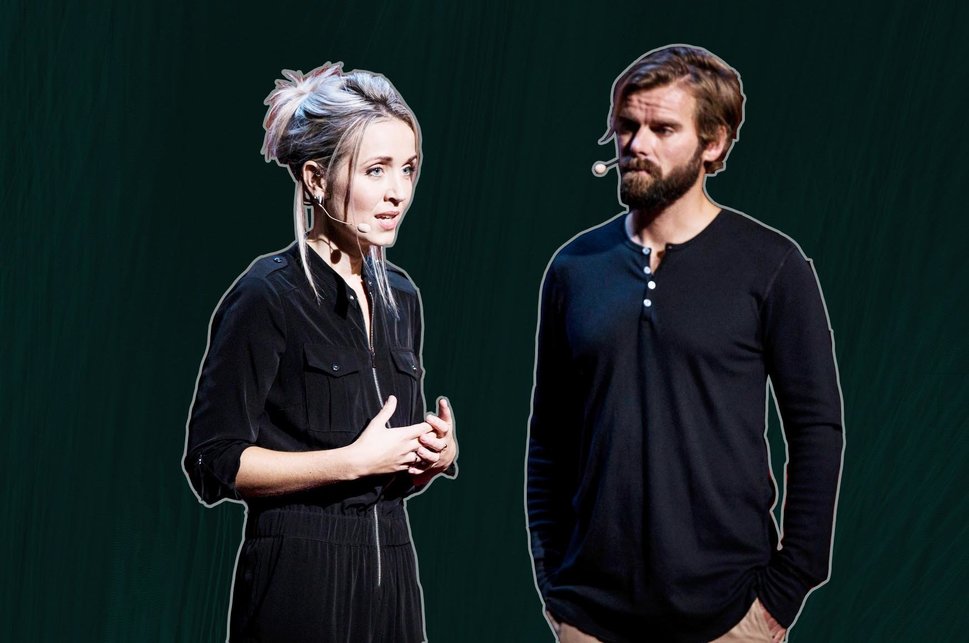
Twenty years ago, when she was 16 years old, Thordis Elva was raped by her then-boyfriend, Tom Stranger, who was 18 at the time. Thordis had been drinking rum before their Christmas dance in December of 1996 ― when she was too sick to stay out, Tom took her home, and proceeded to rape her.
Tom, an Australian studying abroad in Thordis’s native Iceland, ended their relationship a few days after he assaulted her, and moved back to Australia shortly thereafter. In the years since, Thordis and Tom have committed much of their lives to understanding the “why” of that fateful December night. Their lives have been centered around the traumatic act ― with one of them having committed it, and another having endured it ― and in the years after, they both followed a path of self-destruction and denial for reasons that are, as one can imagine, starkly different.
Like millions of women all over the world, Thordis found herself carrying the shame and weight of being a “rape victim.” Meanwhile, Tom ran away from the memories of that night, unable to grasp that a man like him ― white, privileged, attractive by Western standards, brought up in a stable family with positive role models ― could commit an act like that.
But in 2005, almost 10 years after the assault, Thordis realized what she was missing, and what might set her free: forgiveness. She decided to reach out to Tom.
This email sparked eight years of often excruciating correspondence. They spent those eight years relearning the events of that night in 1996, and understanding that what Tom had done was inarguably an act of sexual violence; he had raped her. Their dialogue eventually culminated in an in-person meeting in Cape Town, South Africa ― between Tom’s native Australia and her native Iceland.
Their week-long meeting resulted in a book, South of Forgiveness.
As Tom and Thordis discuss in this interview, their cause is not to make a case of sympathy for rapists, or argue impunity for the crime of sexual assault. Their goal is to open the conversation about the systems in place that give men entitlement to women’s bodies in hopes that sexual violence can be prevented.
This excerpt of Thordis’s writing from South of Forgiveness is an apt summary of their purpose in writing it:
If men like Tom ― who belong to a social group that often escapes analysis and scrutiny because they conform to what is seen as the “norm,” who come from stable backgrounds, and enjoy various privileges ― would confess to have raped and regretting it, it might provide the foundation for a long-awaited conversations about the root causes of sexual violence.
In order for people to better understand this type of abuse, they need a three-dimensional view of those who perpetrate it, not two-dimensional stereotypes that either vilify the perpetrators as “monsters” or glorify them to the point where their crimes become unthinkable. The ripple effect could be enormous, the possibilities endless. “
Click here for the full article.
Free Yourself Global
Much like Thordis and Tom our global domestic violence campaign Free Yourself Global also aims to challenge the narrow and outdated two-dimensional stereotypes that either vilify the perpetrators of abuse as “monsters” or glorify them to the point where their crimes become unthinkable. As such,our approach to the issue of domestic violence is much more comprehensive and inclusive as compared to the purview of other campaigns/organizations. It’s become more accepted that women can be abusers, not just of children but of men also whilst still acknowledging that domestic abuse is significantly a women’s issue with women 10 times more likely to be abused than men. We acknowledge these complexities in our campaign Free Yourself Global which is why our focus is on families and how the cycle of violence is passed down through generations and how domestic violence expresses itself differently across cultures. We seek to examine and work to eradicate all the forms of domestic violence including FGM, physical, emotional abuse, forced marriage, marital rape etc.
Furthermore, it is also our contention that in order for people to better understand these types of abuse, they need a three-dimensional view of all those involved. Our holistic approach examines the complex and sometimes fluid roles between victim/ abuser and acknowledges the need to not only provide support for recovering abusers as well as victims but to also include all participants in the dialogue. It is our view that when all stakeholders come together in a grass roots forum, we strengthen our ability to understand, address, and end the cycle of domestic abuse.
Regardless of whether you are a recovering abuser, victim and/or professional working in/with this field, we want to hear your story! You can share it with us on social media using the hashtag #FreeYourselfGlobal or anonymously here, via our website. For more info on how you can choose to tell story and how it will be used to help other people in need, or to learn how to become involved in other ways with this breakthrough campaign, email info@freeyourselfglobal.com. To simply keep up to date on our campaign and the latest news pertaining to domestic violence worldwide make sure to follow us on Facebook and Instagram.
